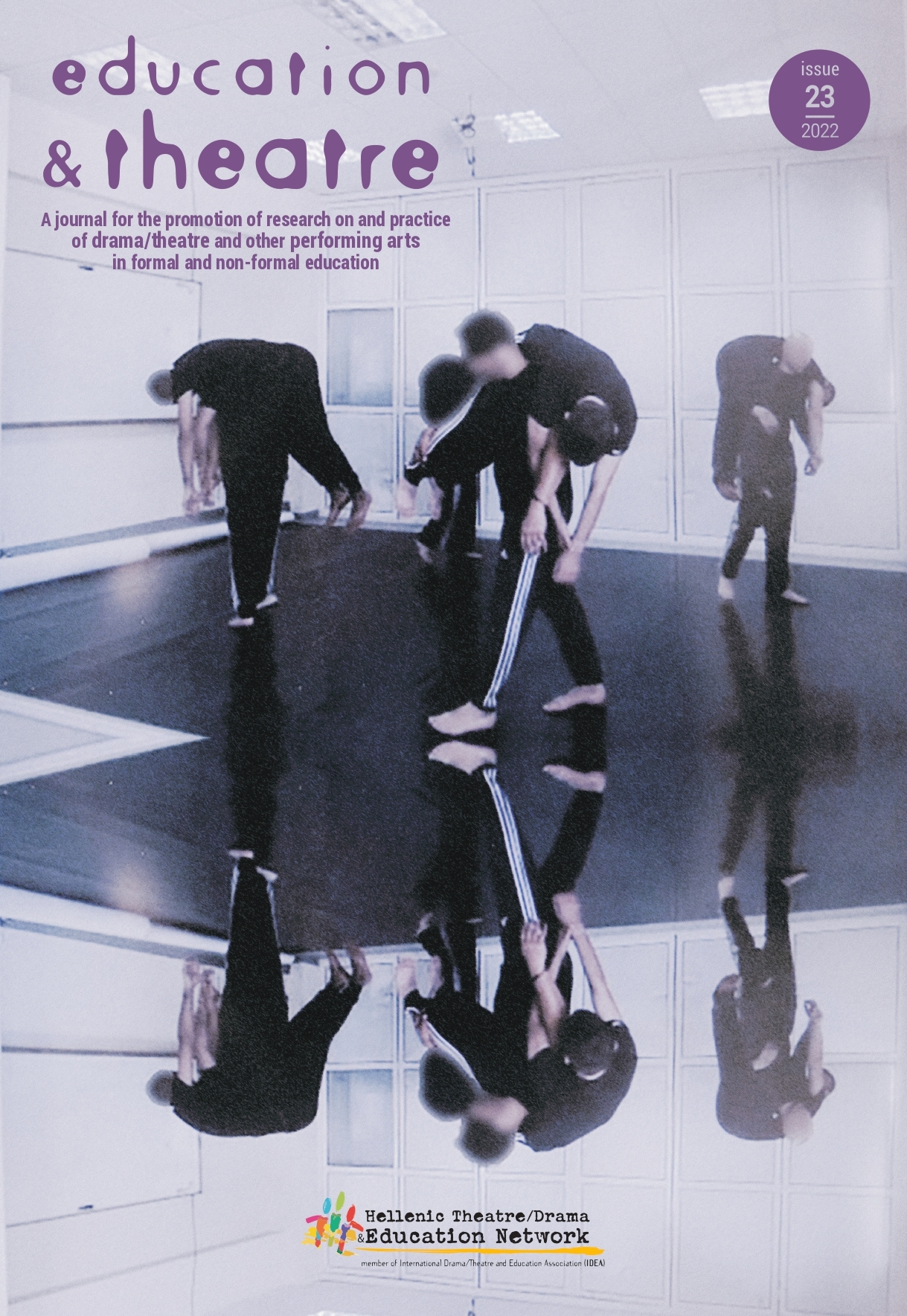Learners in the role of eco-journalists explore global environmental challenges

Abstract
This article presents a pedagogical scenario where an educational approach of drama-based practices at the upper primary or secondary school level was developed. The proposed interdisciplinary and differentiated learning approach combines (native or foreign) language teaching, drama workshop techniques and environmental education concepts, values and desired attitudes. Language and arts education open up to the extra-disciplinary horizons of the curriculum by integrating socio-ecological concerns, particularly the climate change, which is documented to be a most vital contemporary challenge, thus raising awareness on the intersections of nature, human rights and culture, fostering ecological literacy, sustainability values, students’ creativity, critical
thinking and active engagement. The proposed six teaching hour activities, described step by step, will allow learners to assume the roles of eco-journalists, visual storytellers and artists, take interest in tackling major global issues
and manage to acquire competences for life.
Article Details
- How to Cite
-
Voutyra, A. (2022). Learners in the role of eco-journalists explore global environmental challenges . Education & Theatre, 23, 38–43. https://doi.org/10.12681/edth.37666
- Section
- Innovative Projects Presentations





